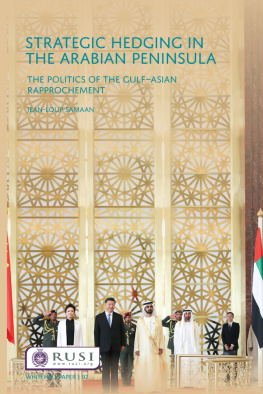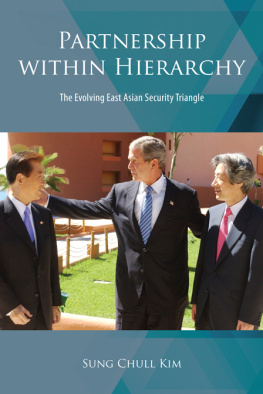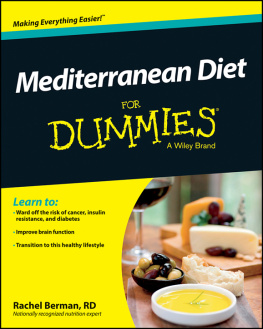Jean-Loup Samaan - The East Mediterranean Triangle at Crossroads
Here you can read online Jean-Loup Samaan - The East Mediterranean Triangle at Crossroads full text of the book (entire story) in english for free. Download pdf and epub, get meaning, cover and reviews about this ebook. publisher: Pronoun, genre: Politics. Description of the work, (preface) as well as reviews are available. Best literature library LitArk.com created for fans of good reading and offers a wide selection of genres:
Romance novel
Science fiction
Adventure
Detective
Science
History
Home and family
Prose
Art
Politics
Computer
Non-fiction
Religion
Business
Children
Humor
Choose a favorite category and find really read worthwhile books. Enjoy immersion in the world of imagination, feel the emotions of the characters or learn something new for yourself, make an fascinating discovery.
- Book:The East Mediterranean Triangle at Crossroads
- Author:
- Publisher:Pronoun
- Genre:
- Rating:3 / 5
- Favourites:Add to favourites
- Your mark:
- 60
- 1
- 2
- 3
- 4
- 5
The East Mediterranean Triangle at Crossroads: summary, description and annotation
We offer to read an annotation, description, summary or preface (depends on what the author of the book "The East Mediterranean Triangle at Crossroads" wrote himself). If you haven't found the necessary information about the book — write in the comments, we will try to find it.
The East Mediterranean Triangle at Crossroads — read online for free the complete book (whole text) full work
Below is the text of the book, divided by pages. System saving the place of the last page read, allows you to conveniently read the book "The East Mediterranean Triangle at Crossroads" online for free, without having to search again every time where you left off. Put a bookmark, and you can go to the page where you finished reading at any time.
Font size:
Interval:
Bookmark:
THE ALLIANCE SYSTEM IN the Eastern Mediterranean Sea has significantly evolved over the last years. The rift between Israel and Turkey since 2009 led to new strategic developments. In particular, Israeli-Greek ties have grown in earnest. Authorities in Israel and Greece have signed various trade as well as security cooperation agreements. Furthermore, the discovery of natural gas reserves in the southeastern Mediterranean has prompted cooperation between Israel, Cyprus, and Greece.
This Israel-Greece-Cyprus initiative has logically triggered strong opposition from Turkey, which does not recognize the government in Nicosia and objects to the claims of the Greek Cypriot Administration over the gas reserves in the south of the island. Ankara responded by conducting air and sea military drills close to the area of the planned project, and Foreign Minister Ahmet Davutolu threatened that Turkey would take appropriate measures if the three countries were to go on with the project.
As a result, the East Mediterranean Triangle can now be characterized as a volatile regional system in which alliances are no longer stable blocs. This is reflected in the ambivalent games played by the three main actors. Each of them is trying to seek seemingly contradictory goals: Israel wants to restore its ties with Turkey while hedging against Ankaras policies via a rapprochement with Greece; Greece aims to strengthen its military and commercial relations with Israel, but without openly defying Turkey; Turkey still benefits from Israeli military know-how but expresses strong condemnations of Prime Minister Benjamin Netanyahus government, and moreover, it dismisses the Israeli-Greek rapprochement while it uses its Navy in the Mediterranean area as a means of coercive diplomacy against competing forces. All of this generates an odd zero-sum game: every stakeholder claims the rules of this game still apply but bypasses them.
Moreover, the competition affects the security arrangements in Europe, with the North Atlantic Treaty Organization (NATO) Middle East partnership being in a deadlock. The natural gas projects brought about disputes over the territorial claims in the area and in the coming years, without a diplomatic settlement, it could lead to rising naval skirmishes with gunboat diplomacy becoming a norm.
To prevent instability, the United States has to navigate between the concerns and the sensitivity of three allies. The core issue of the current troubles in the East Mediterranean Triangle remains the crisis in the Turkish-Israeli relations. As a result, the first measure to prevent further escalation in this rift is to disconnect the Turkish-Israeli file from the Greek and Cypriot cases. U.S. diplomats and officers should carefully dismiss the counterbalancing narrative behind the Israeli-Greek rapprochement. Following the same logic of prevention, the U.S. administration may address the NATO issue by making the case that the Alliances partnership policy should not be undermined by the tensions between one member nation and a partner country. It does not mean challenging or ignoring the Turkish political agenda; otherwise, this would only bring further obstruction from Ankara. However, the scope of NATO-Israel partnership is by nature modest and should not be the issue of a fierce diplomatic fight. A second step would look at the ways to reinitiate political and diplomatic dialogue between Israel and Turkey. The United States could act as a mediator by convening working-level meetings to discuss common areas of interest, such as the Syrian crisis and its effects on the region. Eventually, this could pave the way for a return to stability in the East Mediterranean area.
ON MAY 14, 2015, the Israeli, Greek, and U.S. Navies concluded a 2-week long exercise named Noble Dina. Officially, this annual trilateral naval exercise is designed to increase interoperability by developing the individual and collective maritime proficiencies of Greece, Israel, and the U.S., while also promoting friendship, mutual understanding, and cooperation. The 2015 edition was the fifth and largest one as it involved hundreds of military personnel of the three countries and nearly a dozen ships, such as Greek and Israeli submarines, the U.S. Arleigh Burke-class guided missile destroyer Laboon (DDG 58), the Military Sealift Command fleet-replenishment oiler USNS Lenthall (T-AO 189), and P-3C Orion aircraft. The scenarios driving the exercise included search and rescue missions, ship seizure, and port security operations.
It was only 5 years ago that this naval exercise did not exist, but moreover, the Israeli and the U.S. Navies were conducting a similar one with Greeces neighbor and long-time rival, Turkey. Indeed, from 1998 to 2009, Israel, Turkey, and the United States had been organizing the exercise Reliant Mermaid. Following the 1996 agreement between Israel and Turkey for military cooperation, the two Mediterranean countries had been strengthening their ties by increasing joint defense activities. In that perspective, Reliant Mermaid served as a means to enhance interoperability between their navies. Moreover, for Ankara and Jerusalem, Reliant Mermaid was conveying a message of resolve and deterrence to the surrounding hostile countries, namely Syria and Iran. However, Turkish participation in the exercise stopped in 2010 following the crisis over the Mavi Marmara flotilla that saw the Israeli navy opening fire on Turkish activists refusing to comply with the Gaza blockade. Soon, the Turkish Israeli relation would turn sour, and the Israeli navy opened discussions with its Greek counterpart to organize a similar exercise, Noble Dina.
The story of this exerciseits timing, its purpose is not a mere anecdote. It reflects the swift and major change in power plays that the East-Mediterranean region has been experiencing over the last 5 years. As we will see in this monograph, this shift has ramifications not only in the realm of military cooperation, but also in domains such as diplomatic negotiations, commercial activities, and energy markets.
Specifically the new dynamics between Greece, Turkey, and Israelthe members of what we call here the East Mediterranean Trianglehave an impact on critical issues such as the negotiations over the status of Cyprus. It affects regional organizations like the North Atlantic Treaty Organization (NATO) whose Middle East partnership, the Mediterranean Dialogue, suffered from the tensions.
But as politics changed so did the business landscape. Israeli tourists to Turkey progressively migrated to Greece as well as arms sales (though Turkey remains an important client of Israeli defense companies). Moreover, the discovery of natural gas reserves in the Southeastern Mediterranean has prompted cooperation between Israel, Greece, and Cyprus. Former Israeli Energy Minister Uzi Landau went as far as to speak of an axis of Greece, Cyprus, and Israel, and possibly more countries, which will offer an anchor of stability.
This Israel-Greece-Cyprus initiative has logically triggered strong opposition from Turkey, which does not recognize the government in Nicosia, and objects to the claims of the Greek Cypriot Administration over the gas reserves in the south of the island. Ankara responded by conducting air and sea military drills close to the area of the planned project, and Foreign Minister Ahmet Davutolu threatened that Turkey would take appropriate measures if the three countries were to go on with the project. This has been denounced by Israel as gunboat diplomacy.
As a result, the strategic triangle in the East Mediterranean has seen its inner logic completely revised. Understanding these currents and their implications is the core objective of this monograph. In the following sections, we offer an appraisal of this regional security complex that connects the on-going changes and troubles with the historical developments since the end of World War II. Indeed, it is a risky endeavor to describe the contemporary crisis in Israeli-Turkish relations without looking back at the making of these relations years ago and their subsequent evolution. The same could be said of the sudden Greek-Israeli rapprochement. The historical background helps us in distinguishing between core issues and temporary skirmishes, between momentary enthusiasm and solid partnership.
Font size:
Interval:
Bookmark:
Similar books «The East Mediterranean Triangle at Crossroads»
Look at similar books to The East Mediterranean Triangle at Crossroads. We have selected literature similar in name and meaning in the hope of providing readers with more options to find new, interesting, not yet read works.
Discussion, reviews of the book The East Mediterranean Triangle at Crossroads and just readers' own opinions. Leave your comments, write what you think about the work, its meaning or the main characters. Specify what exactly you liked and what you didn't like, and why you think so.






